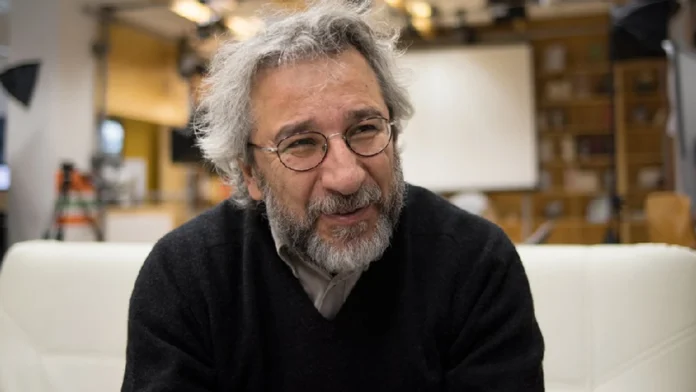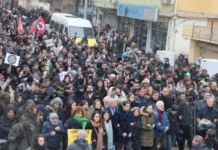An İstanbul court has ordered a block on the YouTube channel of journalist living in exile Can Dündar, citing “national security and public order” after he urged the main opposition Republican People’s Party (CHP) and its supporters to take to the streets to protest the government’s appointment of trustees to the party, Turkish media reported.
In a video on YouTube Dündar argued that the people who abolished the rule of law had paved the way for civil disobedience, saying the CHP had “only one way out: to be on the street, to remain on the street, to use its legitimate power that comes from the street.”
Dündar’s remarks drew sharp criticism in the pro-government media, which portrayed the video as a “call for an uprising.” The İstanbul Chief Public Prosecutor’s Office subsequently launched an investigation, leading the İstanbul 6th Criminal Magistrate of Peace to impose the access block under Article 8/A of Turkey’s Internet Law.
The court notified internet service providers of its decision, although access to the channel had not been yet restricted as of Friday.
Dündar was arrested in November 2015 after the Cumhuriyet daily published a report, including photos, on arms shipments to Syria by Turkey’s National Intelligence Organization (MİT). He was accused of “espionage” and “divulging state secrets.”
President Recep Tayyip Erdoğan vowed Dündar would pay a “heavy price” for publishing the images and personally filed a complaint with prosecutors seeking multiple life sentences. Dündar was released from prison on February 26, 2016, after Turkey’s Constitutional Court ruled that his rights had been violated. He has been living in Germany since June of the same year.
Since then, Turkish authorities have repeatedly blocked access to Dündar’s news websites and ordered the seizure of his assets.
According to a report issued by the Dicle Fırat Journalists Association (DFG), 33 journalists were in prison in Turkey as of August 31.
Turkey, one of the world’s leading jailers of journalists, was ranked 159th out of 180 countries in the 2025 World Press Freedom Index, published by Reporters Without Borders (RSF).
The authorities frequently use broad counterterrorism laws and insult charges to prosecute members of the press.















